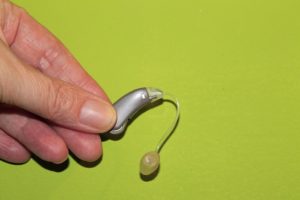
About 65 percent of adults older than 60 years have some hearing loss. However, a Johns Hopkins study revealed that only about 14 percent of people experiencing hearing loss get hearing aids. People who do not hear well tend not to socialize, because they have difficulty participating in conversations. They are also generally less involved in activities that provide brain stimulation, like attending classes or lectures. A study that came out in December of 2022 had followed more than 137,000 adults for 25 years and found that people who started using hearing aids showed small improvements on cognitive tests and were almost 20 percent less likely to develop cognitive decline or dementia in the long term.
A study presented at the Alzheimer’s Association International Conference (AAIC) in July of this year presented findings that support hearing aids as a way to protect our cognitive health. The Aging and Cognitive Health Evaluation in Elders (ACHIEVE) study was a randomized, controlled clinical trial of hearing aids. Researchers followed almost 1000 adults without cognitive impairment, aged 70 to 84, over a three-year period. They provided hearing aids, instruction, and counseling. Results showed that the hearing intervention improved communication abilities, social functioning, and loneliness. And in a specific segment of the group studied- those who were also participating in an observational study of heart health- the researchers found that hearing intervention appeared to slow cognitive decline by 48 percent, so about half. Their conclusion was that the use of hearing aids when needed is especially helpful to people who are at higher risk for dementia, in terms of lowering risk of cognitive impairment.
The take-away here is that older adults should have their hearing checked regularly and have hearing issues addressed by an audiologist. Hearing loss is very treatable, and if treated, can reduce the risk of cognitive decline and dementia.